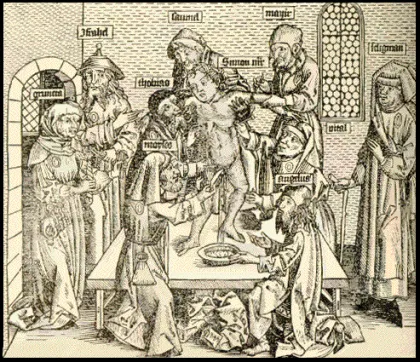The Epistles of Paul - 1 Corinthians Part 12: Idolatry, Angels and Demons
The Epistles of Paul - 1 Corinthians Part 12: Idolatry, Angels and Demons
Discussing the first portion of 1 Corinthians chapter 10 we had seen Paul's own assertions that the Corinthian Greeks to whom he had written this epistle were indeed descended from the Israelites of the Exodus. We discussed corroborating historical evidence which proves that Paul's words are literally factual. For that reason Paul had also admonished them not to commit the sin of fornication, or race-mixing, as their fathers had done and for which many of them were destroyed. This was among other acts of disobedience which Paul had mentioned from Scripture as an illustration for their admonishment. From fornication, Paul then turned to admonishing the Corinthians concerning idolatry. There he made a very revealing statement, one which is often glossed over by churchmen who are ignorant of its significance, where he said “Behold Israel according to the flesh” and then after a few rhetorical questions concerning the efficacy of idols he finished his reference by stating that “whatever the Nations sacrifice, they sacrifice to demons, and not to Yahweh”. It is absolutely evident that Paul's intention with those words was to identify the nations of the oikoumenê as “Israel according to the flesh”, or as the Christogenea New Testament has it, “Israel down through the flesh”.




 This PDF purports to be exactly as the text of the original Arnold Leese book, and to be faithful to the pagination.
This PDF purports to be exactly as the text of the original Arnold Leese book, and to be faithful to the pagination.



 Please click here for our mailing list sign-up page.
Please click here for our mailing list sign-up page.







